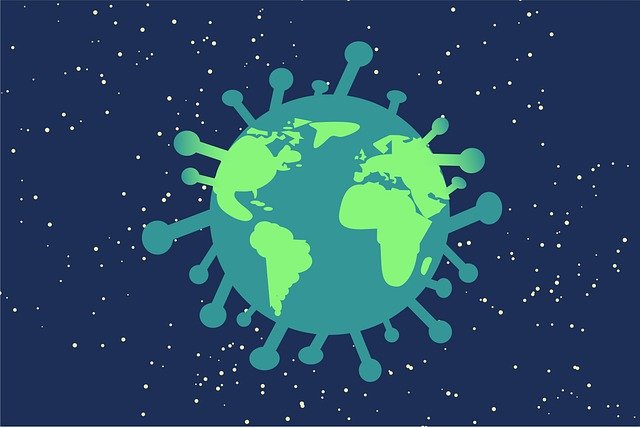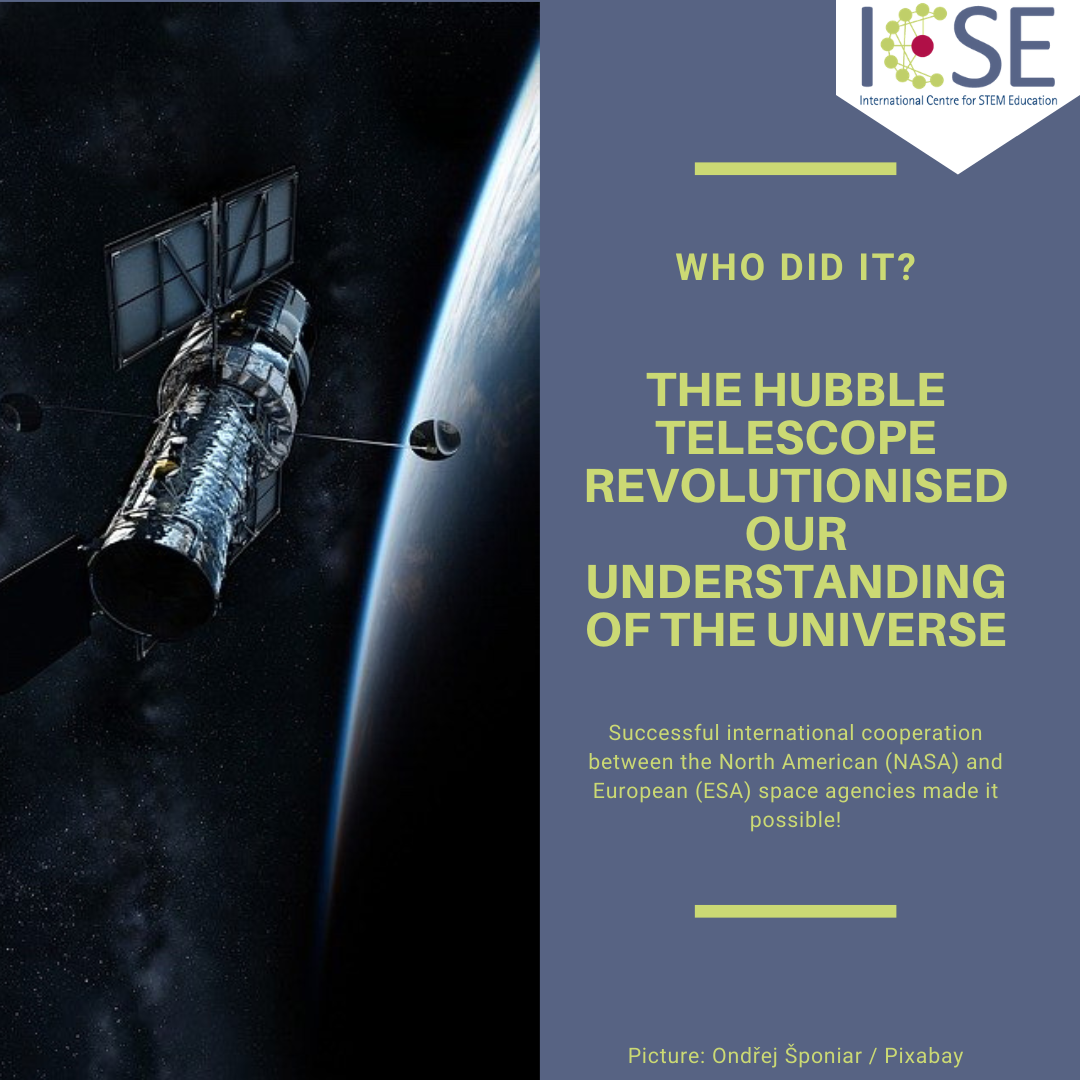Stronger together: Why science and cooperation matter!
Katja Maaß, Oliver Straser, Katharina Flößer & Chrissi Fischer
Covid 19 – even though the whole world is confronted with the same virus, every country is dealing with it differently with different restrictions and different rules. In times, when it would be important to stick together, we are focusing on national rather than on international levels. Solidarity and team spirit or separation? National rules or international cooperation? Which spirit should guide our action?
And when we take action what do we base our action on? Gut feeling, personal opinions, disinformation or scientific evidence? It is scientific research that has been crucial for making progress in fighting diseases and making pioneering inventions – as history well shows. To fight an opponent, a virus that threatens the whole world at the same time, there is only one way to win the battle: we are stronger together – science and cooperation really matter!
Our world has to face several global challenges such as climate change, environmental protection, health, food security, sustainable agriculture, energy provision or social justice. The corona virus (SARS-CoV-2), which is only one of these challenges, makes more than evident that reflective action is needed.
Day after day we are confronted with seemingly contradicting statements from virologists and experts, statistics giving different information, numbers difficult to understand (e.g. casualties, reproduction number, infected people), and varying prognosis for the future in mainstream media. Does this apparently varying information help or does it contribute to insecurity? In the internet, we currently find heaps of information, which provide far too easy answers to extremely complex questions, often scapegoating groups or individuals . Is this the kind of information we need and what does it say about our relationship to science in its many complex and nuanced debates and findings? Do these simple answers to a health pandemic mean that science is not able to support us in times of global challenges?

Not at all! Science is crucial for making progress in times of global challenges. However, we have to acknowledge the way knowledge acquisition works in science. Science does not provide easy and immediate solutions on complex challenges. Working scientifically means setting up hypothesis, gathering data, analyzing data, adjusting hypothesis and learning every day more about new and complex phenomena such as COVID 19 or climate change. That is why statements of scientists change in the course of time. Still, basing our proceeding on assumptions and hypothesis based on scientific research and evidence is the only option to deal with global challenges as – despite certain insecurity – they show us the most secure ways to face these global challenges. In these days in which our whole way of living is affected by COVID 19, we have daily proof of what the crisis can lead to when people do not base their decisions in scientific evidence, but in gut feeling or personal interest.
Complex challenges also require that people working on solutions exchange what they know and add up different pieces of knowledge to a comprehensive picture. This is the case for several reasons. First, complex phenomena and big data often can be analyzed differently and exchange between experts as well as critical and constructive discussions leads to reflective, more saturated knowledge. Second, complex challenges also require expertise from different disciplines. For example, in the discussion on how to deal with COVID 19, virologists, epidemiologists, sociologist, legal experts, psychologists, economists – to name a few – all bring in different perspectives which need to be synthesized to find reasonable solutions. In the same vein, in relation to climate change amongst others meteorologists, geographers, oceanographers, geologists, and physicists have to cooperate. Third, research is a time-consuming and expensive job and consequently cooperation across research teams synergizes results and therefore reduces costs in terms of time and money. This holds also particularly but not exclusively for international cooperation. In these times many countries across the world are working with high intensity to find medications and vaccines. The more we cooperate across borders, the quicker we will probably find solutions for a challenge that affects us all.
The efficiency of international cooperation has also been shown in history. Scientific progress in general is rarely the result of the ingenuity of individuals but mostly the product of a whole community. Whether scientists cooperate directly or continue the work of others, the most common phrase to describe the own role in the contribution to scientific knowledge is the metaphor “standing on the shoulders of giants”, indicating the necessity of the understanding gained by major thinkers who have gone before in order to make intellectual progress.
As we are an International Center for STEM Education, this thought of a scientific community and scientific progress as a result of (international) collaboration is deeply anchored in our hearts. It reflects our principles as scientists and our determination as an international community. With respect and admiration, we think of many milestones in the history of science substantiating this thought. As for example:
- The Hubble Telescope, an international project of the American and the European Space agencies which deepened our understanding of our solar system and the universe.
- The first Ideas for the Lithium Ion Battery began in the 1970’s in Germany, but the first successful battery was developed in Britain in the 1980’s, while the first industrial production was worked out in Japan, 1985.
- The Human Genome Project, where scientists from all over the world and several areas decoded the base pairs making up the human DNA, which now is used to understand and fight hereditary diseases.
- To fight the Rinderpest (also known as cattle plague) the World Health Organization of Animal Health (OIE) was founded and the eradication of this disease is regarded as global success.
- The smallpox disease was eradicated by collaborative efforts of the World Health Organization (WHO) and other health organizations with continuous vaccination in the 1970’s.
(Note that this list is neither complete nor balanced, it reflects somehow our field of research but more importantly our personal interests).
Summing up, if we stick together, cooperate and work research-based, we are able to manage global challenges. To emphasize the relevant role of science and international collaboration, we – the International Centre for STEM Education (ICSE) and the ICSE Consortium – decided to run two campaigns.
#TogetherforScience
First, we invite international scientists, stakeholders and members of society to communicate the role science and international cooperation plays for them. This campaign serves to make benefits of basing decisions to global challenges in science and the benefits of cooperating in science and other disciplines visible. We want to show the world that isolationism, personal interests or gut feelings can never be a sustainable answer to issues that affect us all. If you also identify with this core belief of ours and want to contribute, we would love to hear from you! You can do this either by posting a relevant picture (maybe of yourself holding a sign, your work or some scientific project, adding your thoughts beneath), completing one of the following sentences:
“Science matters to me, because….”
“International cooperation in science matters to me, because…”
You can also send us an e-mail with your statement that we will then publish on our website feed.
Let’s show the world how we work #togetherforscience!
#WhoDidIt
Second, we want to inform people about the merits international cooperation in science had in our history. For this purpose, stay tuned and follow our Instagram profile at icse_freiburg. Every second Wednesday we will post a major milestone in science that was reached by international collaboration.
We will show you #whodidit!
Let’s stick together in this time of crisis! Please join our campaign. If you want to contribute, send us an email or post your picture on Social Media, using #TogetherforScience.

